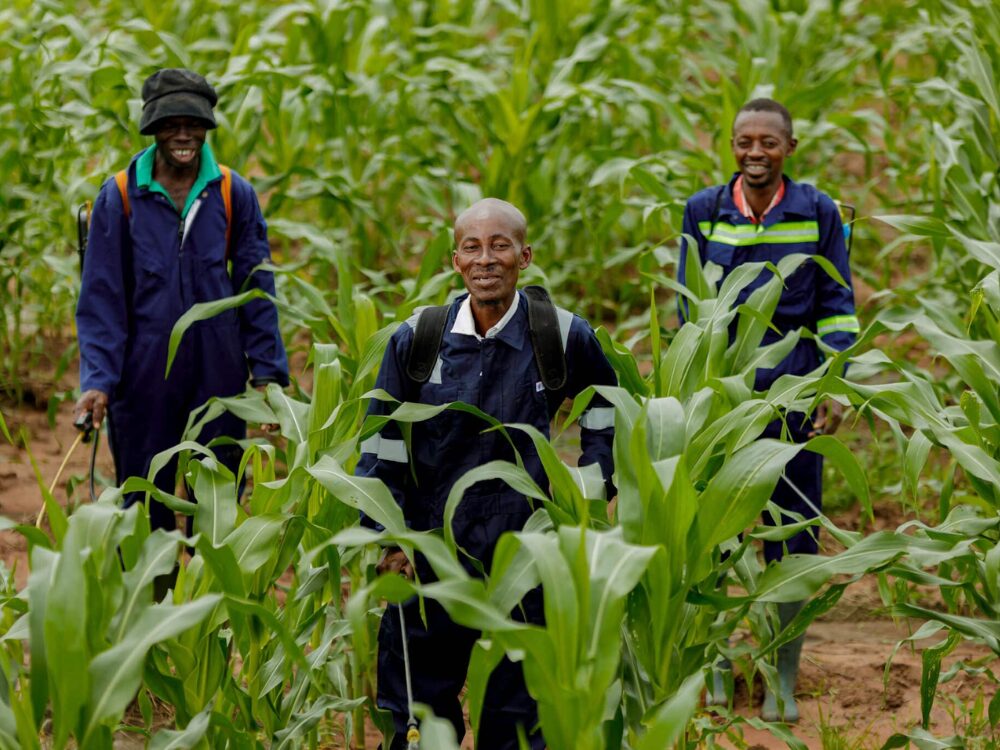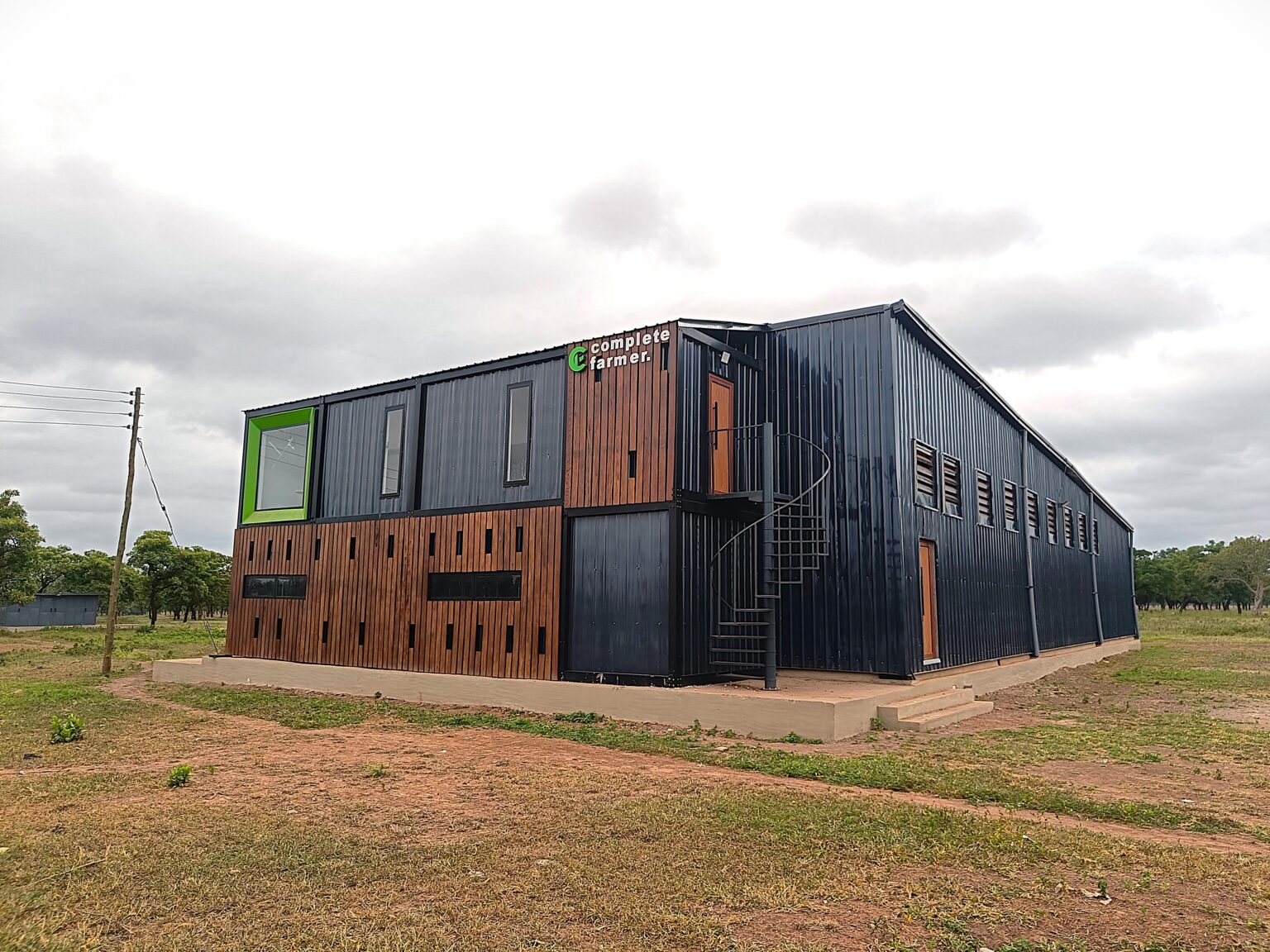Making agriculture profitable is a herculean task in Africa. This is something Desmond Koney, CEO of Ghanaian agritech Complete Farmer, understands all too well.
Having grown up on a homestead where his father was a smallholder pineapple farmer, Koney witnessed firsthand the struggles that a majority of farmers on the continent endure. For many, including his father, farming was a means of survival as opposed to a profitable entity.
Koney had one mission after graduating as a mechanical engineer: to transform the livelihoods of farmers by making agriculture profitable. Complete Farmer, founded in 2017, offers an end-to-end agricultural marketplace that aids farmers in this process.

‘Drastic improvements’ in efficiency and yields
Koney’s inspiration was simple:
“I wanted to come up with a model in which farms in Africa can be more efficient to feed global supply chains.”
“The initial idea was thinking of a farm like a factory, he tells AgFunderNews. While in a factory the processes and systems are well aligned, in Africa farming has largely been haphazard, he adds.
Ghana is a classic case. Government data shows that approximately 90% of farmers in the country are smallholders typically cultivating less than two hectares of land; they produce about 90% of the country’s food. Despite the agricultural sector accounting for about 20% of Ghana’s gross domestic product and employing over 52% of the workforce, the poverty rate among smallholder farmers remains high, at about 33%.
Part of Complete Farmer’s mission is to tackle that narrative of entrenched poverty among smallholder farmers. As an end-to-end agricultural marketplace, the firm believes that, by providing technology and ready markets to farmers, it is possible to modernize agriculture and make farming profitable.
For this to happen, the company developed a model anchored on standardizing farming processes. This meant coming up with cultivation protocols that would help farmers increase yields while guaranteeing quality for export markets.
Through the protocols, the platform provides precision agriculture technologies that help farmers optimize their resources. They can, for example, use sensors and AI algorithms to monitor soil conditions, water levels, and crop health, and in doing so understand the best times for planting, watering, and harvesting based on real-time data. The impact is drastic improvements in efficiency and yields, says Koney.
Precision farming also ensures quality produce, since farmers only apply fertilizer and pesticides when crops actually need them. The platform also aids farmers in knowing when when diseases attack and how to intervene quickly.

50,000 farmers and counting
Complete Farmer initially used the cultivation protocols on its own farmers, which quickly led to demand from other farmers, both smallholders and large operations.
The Covid-19 pandemic brought another dynamic into the equation: Due to global supply chain disruptions, demand for commodities increased, and demand from its international markets rose exponentially.
“We realized that we couldn’t do all the farming ourselves given the demand and decided to bring onboard other farmers to grow using our protocols,” explains Koney.
To scale the platform and onboard new farmers, the company raised its first capital in 2022 from seed investors and accelerators including Ingressive Capital, EchoVC, Launch Africa, Samurai Incubate, Kepple Ventures, and Norrsken Accelerator.
The explosion in growth that followed highlighted the need key infrastructures in the Complete Farmer supply chain, most notably centers for post-harvest, packaging, and quality control among other things.
To address that, the company raised a $10.4 million pre-Series A round in 2023; it now operates seven fulfillment centers across Ghana and Togo.
Most recently, it secured €2.2 million ($2.5 million) from the European Union-backed AgriFI initiative.
Today, the platform has over 50,000 farmers, 90% of which adhere to its cultivation protocols and meet the standards of international buyers. It is largely focused on crops in high demand, such as soybeans, sweet potato, cassava, chili pepper, groundnuts, cow nuts, pineapple, mangos, and ginger.
For some crops, like soybeans, farmers on the platform are recording impressive returns, making about 22% more than the national average. More importantly, all the farmers are guaranteed a ready market for their produce owing to the fact that 80% of Complete Farmer’s business is export focused. Most of its customers are large buyers, fast-moving consumer goods companies, and food processors.
“We stay away from crops that have government meddling in the value chain like cocoa and focus on niche crops that have high gross margins,” says Koney.
He adds that the company plans to expand beyond Ghana and Togo, to Senegal and Côte d’Ivoire, in the coming years. In Côte d’Ivoire, it has already conducted a market visibility exercise and intends to start operations after validating the cultivation protocols.
Over the next year, the firm is targeting to have at least 150,000 farmers on the platform, with plans to grow that number to 500,000 in three years. The company is also in the process of raising $22 million in Series A funding to fuel its next phase of growth. It aims to close that round by the end of July.
Apart from growth, the funding is also critical for ongoing technology investments. This is especially true as the company ventures into more countries, where the cultivation protocols can be very technical for smallholder farmers.
For that reason, the firm is building an AI application that will allow it to translate the protocols into the local languages, ultimately making the tools more accessible to more farmers.





